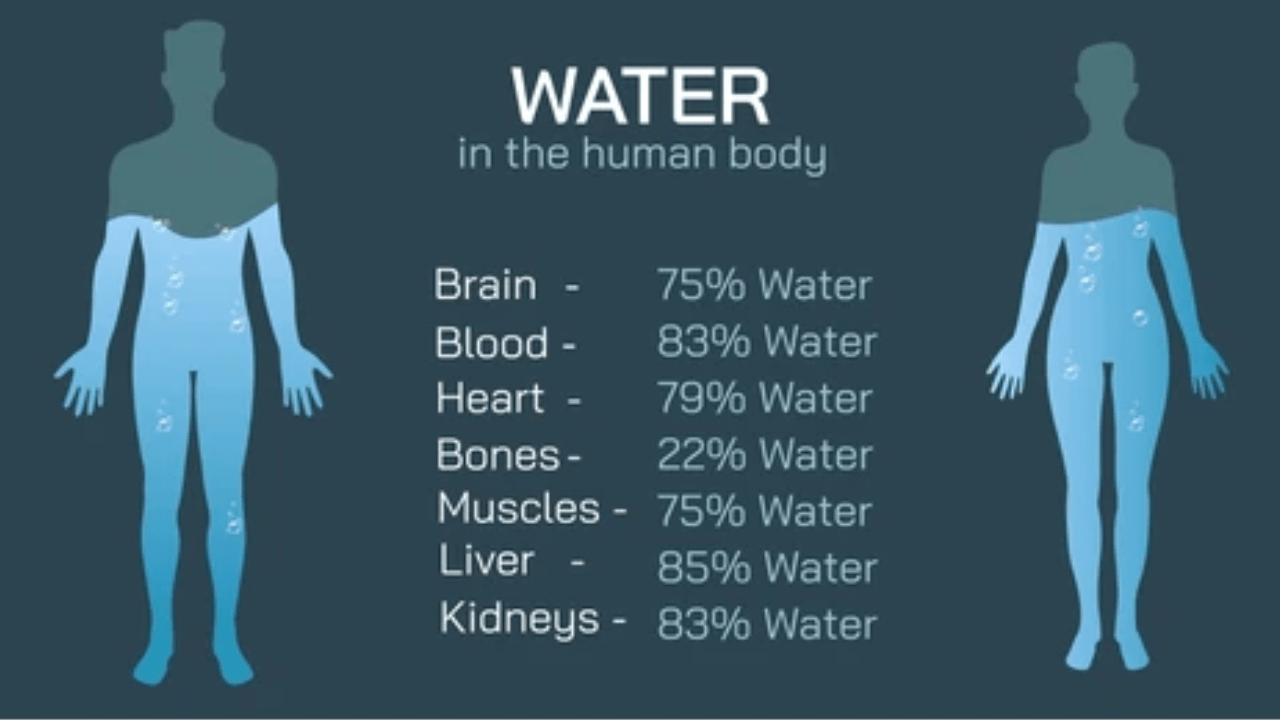Hydration is fundamental to maintaining good health and well-being. Understanding the benefits of proper hydration can boost our health conditions hugely.

A vital element of general health and well-being is proper hydration. Despite its importance, many people overlook the simple yet vital act of drinking enough water. Understanding how much water you need daily, recognizing the benefits of proper hydration, and learning practical tips to stay hydrated can significantly enhance your health.
Why Hydration is Essential
Water is indispensable for the body’s myriad functions. It constitutes about 60% of an adult’s body weight and is involved in various processes, including:
- Controlling body temperature: Sweating and breathing both release heat. Water aids in this process.
- Lubricating joints: Proper hydration ensures that joints remain lubricated, reducing the risk of discomfort and injury.
- Protecting tissues and organs: Water acts as a cushion for your brain, spinal cord, and other sensitive tissues.
- Aiding digestion: Adequate hydration is necessary for saliva production and digestive processes.
- Facilitating nutrient transport: Water dissolves minerals and nutrients, making them accessible to different parts of the body.
- Removing waste: Hydration is critical for the efficient removal of waste products through urine and sweat.
How Much Water Should We Drink Daily?
The amount of water one needs can vary based on several factors, including age, sex, weight, activity level, and climate. However, general guidelines can help you determine an appropriate daily intake.
General Guidelines
The Institute of Medicine (IOM) recommends the following daily water intake:
- Men: around 13 cups, or about 3.7 liters.
- Women: roughly 2.7 liters, or almost nine cups
These suggestions cover more than simply water; they cover all fluids eaten. Fruits and vegetables, which are high in water content, are also good sources of hydration.

Personalized Hydration Needs
While general guidelines are helpful, personal hydration needs can vary. Here are some factors to consider:
- Activity scale: To make up for fluid loss through perspiration, people who are physically active or engaged in intensive physical activity require more water.
- Climate: Hot and humid environments increase the need for water due to higher perspiration rates.
- Health status: Certain health conditions, like fever, vomiting, or diarrhea, can increase water loss and necessitate higher intake.
- Pregnancy and breastfeeding: Pregnant or breastfeeding women require additional fluids to stay hydrated.
What are the Benefits of Proper Hydration?
Numerous health advantages come with maintaining adequate hydration. Here are the benefits of staying hydrated:
- Enhanced Physical Performance: Dehydration can impair physical performance, leading to fatigue, decreased endurance, and coordination issues. Staying hydrated helps maintain optimal performance levels.
- Improved Cognitive Function: Adequate water intake supports cognitive functions like concentration, alertness, and short-term memory.
- Better Mood and Energy Levels: Dehydration can lead to mood swings and decreased energy. Proper hydration helps sustain energy levels and promotes a positive mood.
- Weight Management: Drinking water before meals can promote a feeling of fullness, potentially reducing calorie intake.
- Healthy Skin: Proper hydration keeps your skin looking healthy and vibrant, reducing the appearance of dryness and wrinkles.
- Digestive Health: Staying hydrated helps prevent constipation and supports smooth digestive processes.
Signs of Dehydration
It’s critical to recognize the symptoms of dehydration in order to maintain optimum well-being. Common symptoms include:
- Thirst
- Dry mouth and swollen tongue
- Fatigue and weakness
- Dizziness or lightheadedness
- Dark urine with a strong odor
- Decreased urine output
Severe dehydration can lead to more serious symptoms like confusion, rapid heartbeat, and loss of consciousness. If you experience these, seek medical attention immediately.

Tips for Staying Hydrated
Ensuring adequate hydration throughout the day can be simple with a few practical tips:
- Maintain a Portable Water Bottle: Remind yourself to stay hydrated by carrying a water bottle that you can reuse about.
- Setup Alerts: You can use timers or phone apps to periodically remind yourself to sip water on a regular schedule.
- Flavor Your Water: Add natural flavors like lemon, cucumber, or mint to make drinking water more enjoyable.
- Eat Hydrating Foods: Incorporate water-rich foods like watermelon, cucumbers, oranges, and strawberries into your diet.
- Track Your Consumption: To make sure you reach your hydration objectives, keep a record of the amount of water you consume each day.
- Water is the Best Drink to Start the Day: To stay hydrated, have a glass of water first thing in the morning.
In a Nutshell
Hydration is fundamental to maintaining good health and well-being. By understanding the importance of water and recognizing your personal hydration needs, you can ensure your body functions optimally. Make hydration a priority in your daily routine, and reap the numerous health benefits it offers.
Stay hydrated, stay healthy!
Also Read:

The Psychology of Love: Why Valentines Day Matters More Epic Than You Think
Discover the psychology of love and why Valentines Day is more important than you think. Learn how love impacts the brain, strengthens relationships, and boosts

Premier League Highlights: Arsenal Humiliate Man City 5-1, Spurs and Palace Secure Crucial Wins
Arsenal demolished Manchester City 5-1 in a statement premier league highlights win, reigniting their title hopes. Meanwhile, Crystal Palace stunned Man United 2-0, and Tottenham

How Budget 2025 Impacts the Indian Middle-Class: Major Tax Benefits and Glaring Omissions
Budget 2025 offers major tax relief to the middle class, including zero tax on incomes up to ₹12 lakh. However, it misses out on incentives

Degrees vs Employability: Why “Highly Qualified Degree Holders” Struggle to Find Jobs While “Less Qualified Individuals” Get Hired Faster!
Many highly qualified individuals struggle to secure jobs, while less qualified candidates get hired quickly. This Degrees vs Employability paradox is caused by employer preferences,

The Power of Mindset: Why Looking Poor Doesn’t Make You Poor, but Thinking Poor Does!
Discover why looking poor doesn’t define your wealth but thinking poor does. Learn the power of mindset and how a growth-oriented mindset can lead to

Overthinking: How It’s Damaging Today’s Youth – Causes and Cure in 2025
Understanding how overthinking is silently damaging today’s youth, from its causes rooted in societal pressure and social media to its long-term effects on mental health.
